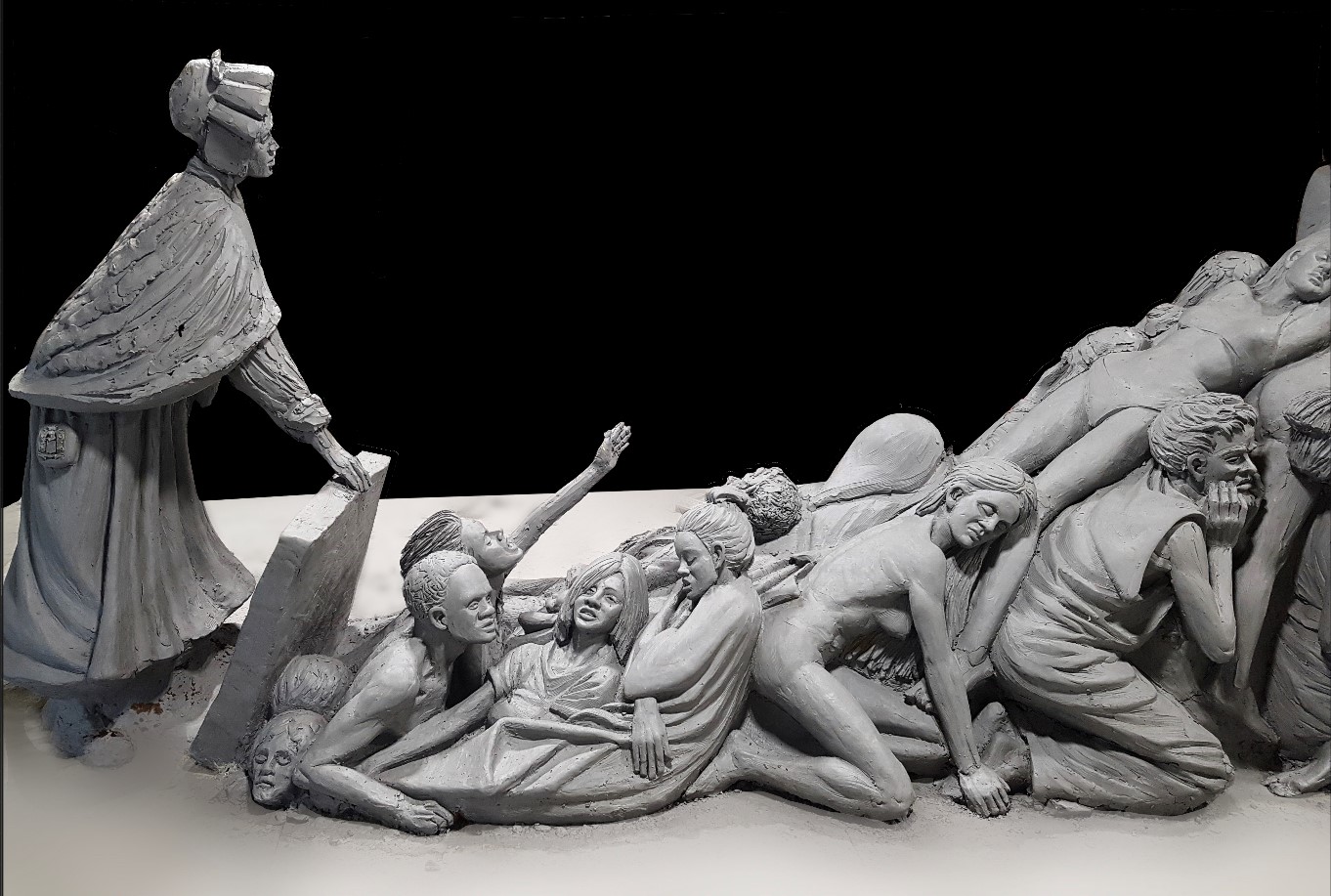
About Josephine Bakhita

The woman who would come to be known as Josephine Bakhita, began life in a small village in the Darfur region of Sudan. A member of the Daju tribe, where her father was the local chief, her early life was relatively carefree until she was kidnapped by slave traders at just seven years old. In the decades that followed, she was bought and sold numerous times, enduring the unimaginable horrors that come with slavery. The beatings (sometimes daily) were so severe that she was permanently scarred, she suffered periodic depravations of food, and other abuses so traumatic that she could no longer remember the name her parents had given her. When asked her name by captors, she was unable to say so they named her “Bakhita,” which means fortunate in Arabic.
In her biography, Bakhita noted one particularly terrifying moment when one of her masters cut her 114 times and poured salt in the wounds to ensure that the scars remained. “I felt I was going to die any moment, especially when they rubbed me in with the salt,” Bakhita wrote. Still, she bore her suffering valiantly.
In 1883, she was eventually taken to Italy where she was purchased by Callisto Legnani, an Italian consul. He took her to work as a nanny for his colleague, Augusto Michieli, who, in turn, sent Bakhita to accompany his daughter to a school in Venice, which was run by the Canossian Sisters.
It was during Bakhita’s time around the Canossian Sisters that she began to learn about God and Catholicism, developing a love for the Gospel and Jesus Christ. The Italian family who had entrusted Josephine to the Canossian Sisters attempted to convince Bakhita to remain in service to them. She opted to stay with the Canossian Sisters instead, creating some contention. The issue was taken to the Italian courts where it was ruled that Josephine could stay in Italy because she was a free woman. Slavery was not recognized in Italy, and it had been illegal in Sudan since before Bakhita had been born.
Bakhita was baptized into the Catholic faith on January 9th, 1890, at 30 years old, taking the Christian name Josephine Margaret. She spent the next 40 years administering to the needs of her fellow sisters within the convent, becoming known for her kindness and humility – traits that never reflected the harshness that she underwent during the first decades of her life. She even said that, “If I were to meet the slave-traders who kidnapped me and even those who tortured me, I would kneel and kiss their hands, for if that did not happen, I would not be a Christian and religious today.”
In her elderly years, Bakhita was steadfastly cheerful, despite her increasing ailments and subsequent physical discomfort. She died on February 8th, 1947, and was canonized by Pope John Paul II on October 1st, 2020 as the Patron Saint of human trafficking. The first person to be canonized from Sudan, Saint Josephine Bakhita provides humanity with hope during an age repeatedly marked by acrimony, vindictiveness, vengeance and retribution.